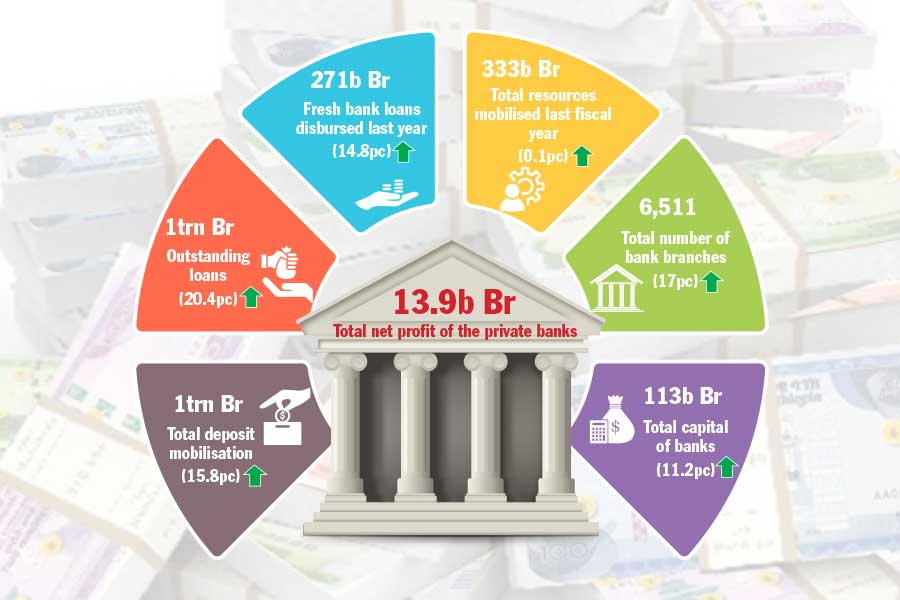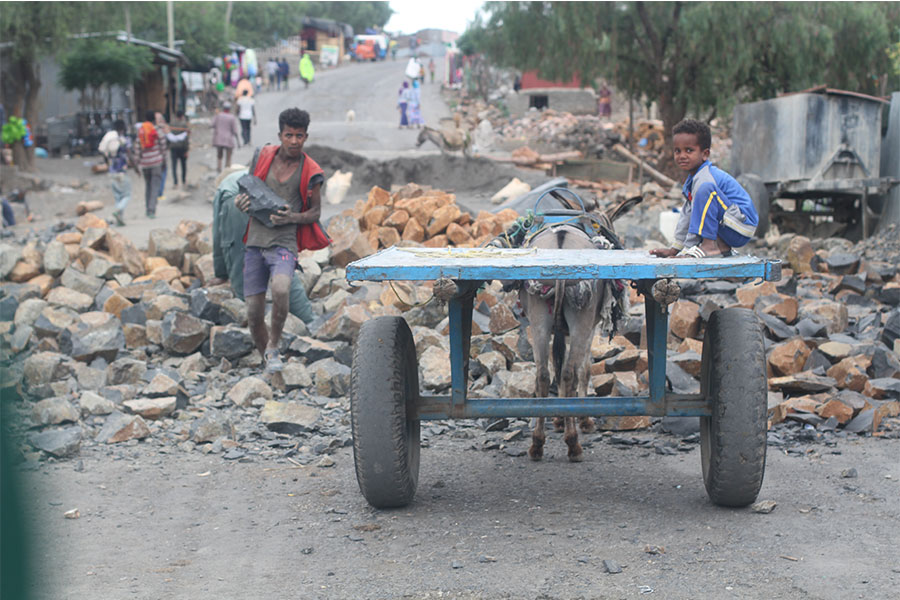
Jun 25 , 2022
By Christian Tesfaye
The world does not discuss artificial intelligence (AI) enough given its potential to disrupt every aspect of our lives on a scale that will make the introduction of the internet look like child’s play. The restraint is understandable. In the end, the technology has not developed fully and reached as wide accessibility as expected. There is still no Blade Runner-level artificial consciousness or invented programmes that are finding cures to cancer.
It is not unheard of for technologies to fizzle out. Humankind put a man on the moon in 1969 but has not had much to show in space exploration since. Today, we are seeing in real time the hopes for decentralised currency get dashed as the likes of Bitcoin fail to prove that they are a hedge against inflation or stock market volatility. And no one talks about the 3D printing revolution any longer. Very few things are inevitable.
But some developments make AI unique: the sheer breadth of the technologies it can apply to, its nearly unparalleled potential, and its philosophical dimensions. Recently, a conversation a Google engineer had with an AI being developed in-house was a whole level of eerie in how the latter expressed its emotions, outlooks and fears about “dying.” It was chilling.
There are breakthroughs inducing fewer existential questions. Take the programme DALL-E, accessible to any user on its website. Using any text prompt, it can generate images – one of the more popular has been an image of Donald Trump as the baby from the famous Nevermind album cover by Nirvana. In many cases, the generated images being shared on social media are very clear and look like they were professionally animated.
What does this mean for the entire profession of graphic designers and animators? Given the amount of data on the internet being fed to this AI programme, how long before I could type “Die Hard but starring Joe Biden,” and I would get a generated video that swaps Bruce Willis for the sitting American president for the entirety of the film?
The question is, who will make the best out of this situation. And why bring up this issue now?
We need to maintain a long-term focus. Humanity is entering a stage in where technologies and systems are radically changing at a rapid pace. Tomorrow is more uncertain than ever. Only societies that can adapt, relearn and focus could cross the bridge. Others, unable to transform their societies in that direction, may remain culled, like the countries that could not manage to industrialise or practice farming.
No doubt that we have our problems and frustrations today in Ethiopia. These are supercharged by social media to appear that nothing else matters. We have revolutionised short-termism to the extent that our DNA has mutated and we have grown short-sighted – many cannot see long-term even if they tried. This is a problem for two reasons.
To start with, the problems that so concern us and take up the most energy may not even matter in the long term. In the 17-year civil war that began in 1974, every political movement and force swore by Marx and Lenin. Now, there is no single movement or force that takes communism seriously. It is simply not in fashion anymore. There are issues we obsess over today but most likely will become irrelevant tomorrow, just as there are matters (like AI) we barely pay attention to now but will consume our lives later.
Short-sightedness will also leave us unprepared in the long term. We like to blame everyone else but ourselves for our present situation. It is either capitalism, communism, neo-liberalism, the Bretton Woods institutions, American hegemony, Chinese encroaching or whatever excuse we manage to come up with in the future. Far be it from me to claim that these did not have an effect but Ethiopia’s, and Africa’s, failures are mainly due to the fact that we have had a hard time comprehending that there is a world outside our immediate sphere. We bicker and fight over every single inch of land, wrongdoing and slight. Once the dust settles, we are surprised and indignant to find that the rest of the world has advanced and left us in the darkness. It is a piece of history played on repeat.
PUBLISHED ON
Jun 25,2022 [ VOL
23 , NO
1156]


Viewpoints | Sep 28,2024

Films Review | Aug 10,2019

Commentaries | May 31,2020

Viewpoints | Sep 28,2024

Viewpoints | Jul 27,2024

Commentaries | Oct 26,2024

Commentaries | May 21,2022

Fortune News | Feb 06,2021

Radar | Jul 20,2019

View From Arada | May 25,2024

Photo Gallery | 180520 Views | May 06,2019

Photo Gallery | 170713 Views | Apr 26,2019

Photo Gallery | 161784 Views | Oct 06,2021

My Opinion | 137289 Views | Aug 14,2021

Dec 22 , 2024 . By TIZITA SHEWAFERAW
Charged with transforming colossal state-owned enterprises into modern and competitiv...

Aug 18 , 2024 . By AKSAH ITALO
Although predictable Yonas Zerihun's job in the ride-hailing service is not immune to...

Jul 28 , 2024 . By TIZITA SHEWAFERAW
Unhabitual, perhaps too many, Samuel Gebreyohannes, 38, used to occasionally enjoy a couple of beers at breakfast. However, he recently swit...

Jul 13 , 2024 . By AKSAH ITALO
Investors who rely on tractors, trucks, and field vehicles for commuting, transporting commodities, and f...

Nov 1 , 2025
The National Bank of Ethiopia (NBE) issued a statement two weeks ago that appeared to...

Oct 25 , 2025
The regulatory machinery is on overdrive. In only two years, no fewer than 35 new pro...

Oct 18 , 2025
The political establishment, notably the ruling party and its top brass, has become p...

Oct 11 , 2025
Ladislas Farago, a roving Associated Press (AP) correspondent, arrived in Ethiopia in...

Nov 2 , 2025
The National Bank of Ethiopia (NBE) has scrapped the credit-growth ceiling that had s...

Nov 2 , 2025 . By SURAFEL MULUGETA
The burgeoning data mining industry is struggling with mounting concerns following th...

Nov 2 , 2025 . By YITBAREK GETACHEW
Berhan Bank has chosen a different route in its pursuit of a new headquarters, opting for a transitional building instea...

Nov 2 , 2025 . By BEZAWIT HULUAGER
Nib International Bank S.C. has found itself at the epicentre of a severe governance...